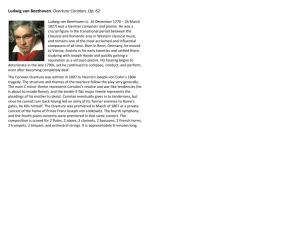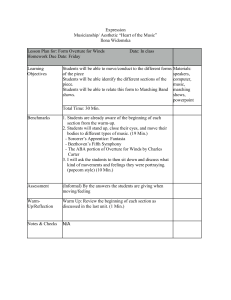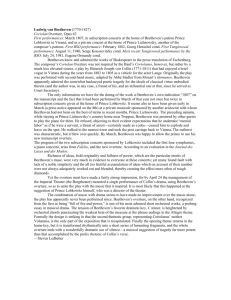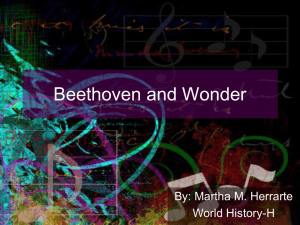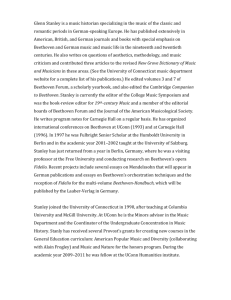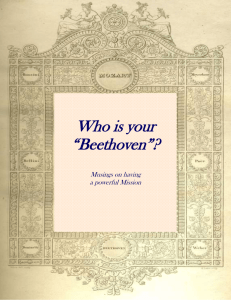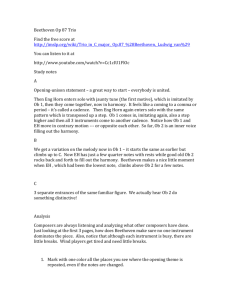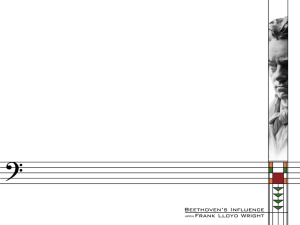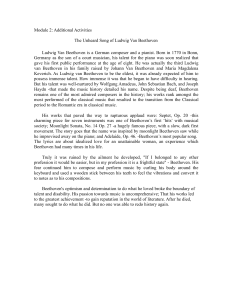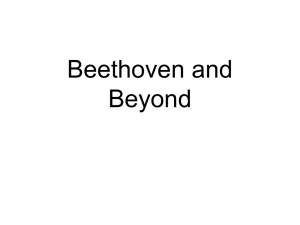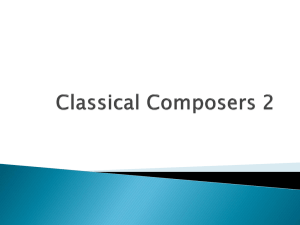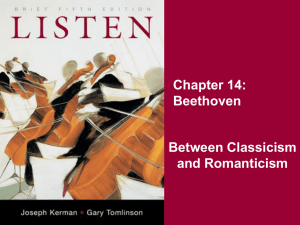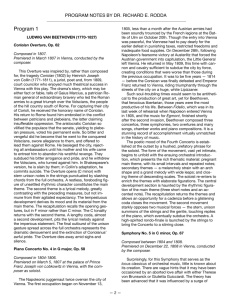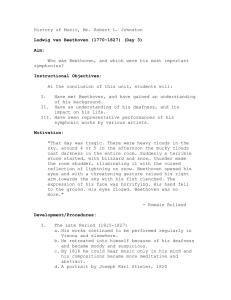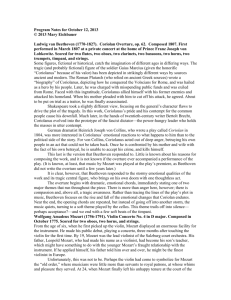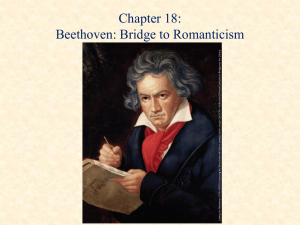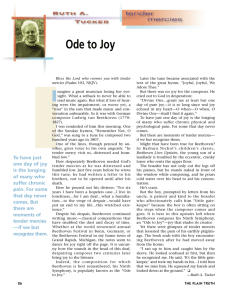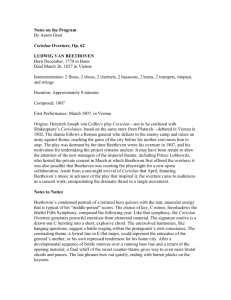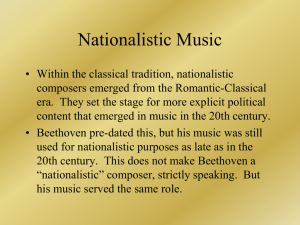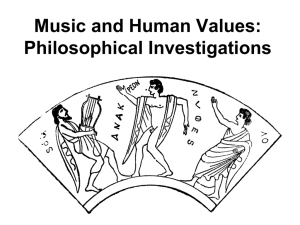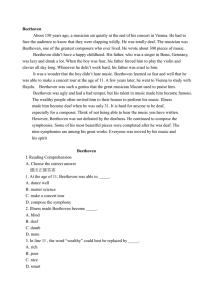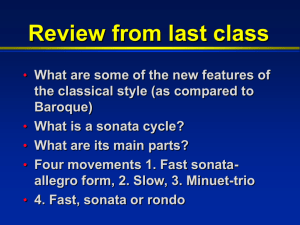LUDWIG VAN BEETHOVEN Coriolan Overture
advertisement
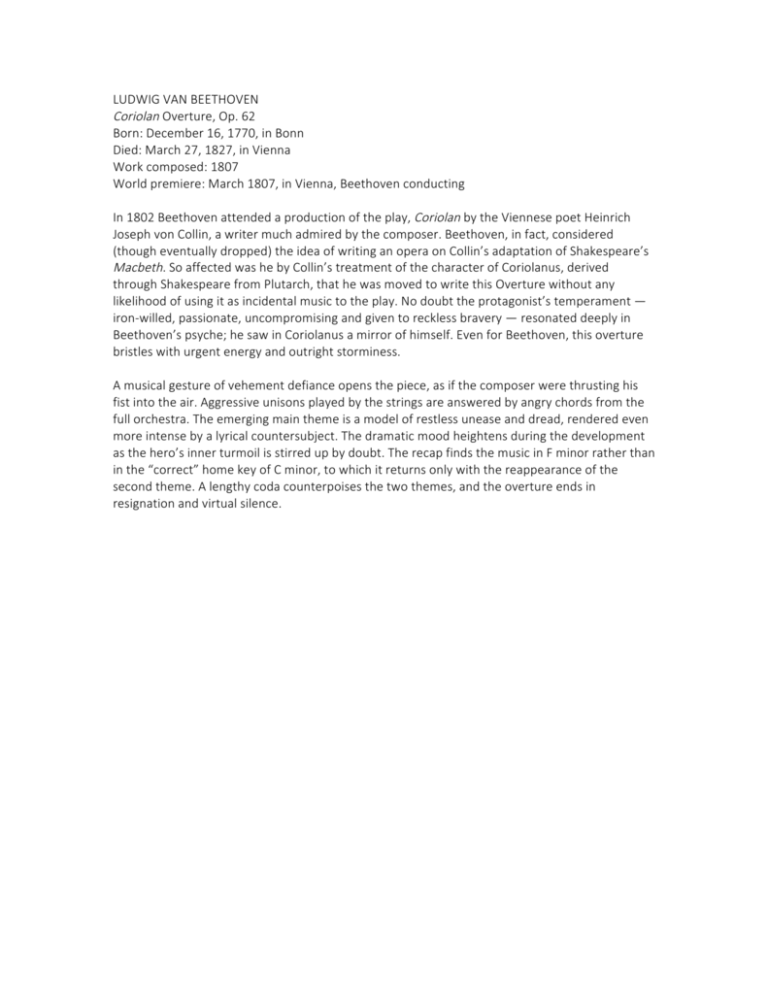
LUDWIG VAN BEETHOVEN Coriolan Overture, Op. 62 Born: December 16, 1770, in Bonn Died: March 27, 1827, in Vienna Work composed: 1807 World premiere: March 1807, in Vienna, Beethoven conducting In 1802 Beethoven attended a production of the play, Coriolan by the Viennese poet Heinrich Joseph von Collin, a writer much admired by the composer. Beethoven, in fact, considered (though eventually dropped) the idea of writing an opera on Collin’s adaptation of Shakespeare’s Macbeth. So affected was he by Collin’s treatment of the character of Coriolanus, derived through Shakespeare from Plutarch, that he was moved to write this Overture without any likelihood of using it as incidental music to the play. No doubt the protagonist’s temperament — iron-­‐willed, passionate, uncompromising and given to reckless bravery — resonated deeply in Beethoven’s psyche; he saw in Coriolanus a mirror of himself. Even for Beethoven, this overture bristles with urgent energy and outright storminess. A musical gesture of vehement defiance opens the piece, as if the composer were thrusting his fist into the air. Aggressive unisons played by the strings are answered by angry chords from the full orchestra. The emerging main theme is a model of restless unease and dread, rendered even more intense by a lyrical countersubject. The dramatic mood heightens during the development as the hero’s inner turmoil is stirred up by doubt. The recap finds the music in F minor rather than in the “correct” home key of C minor, to which it returns only with the reappearance of the second theme. A lengthy coda counterpoises the two themes, and the overture ends in resignation and virtual silence.
